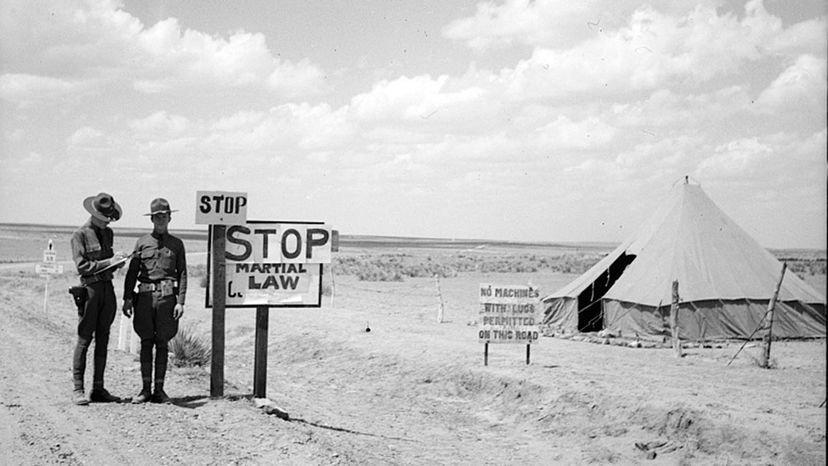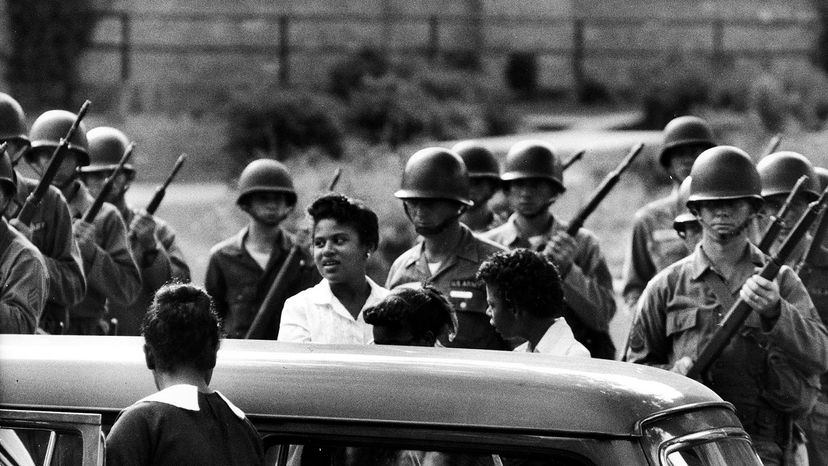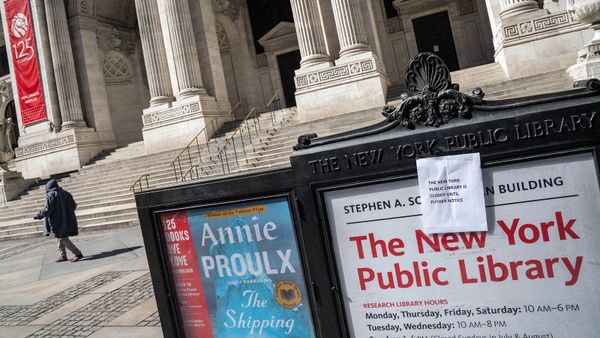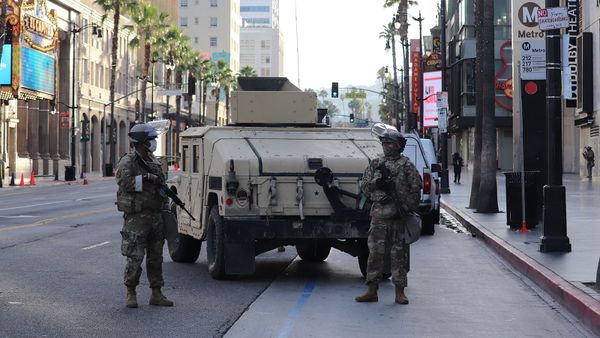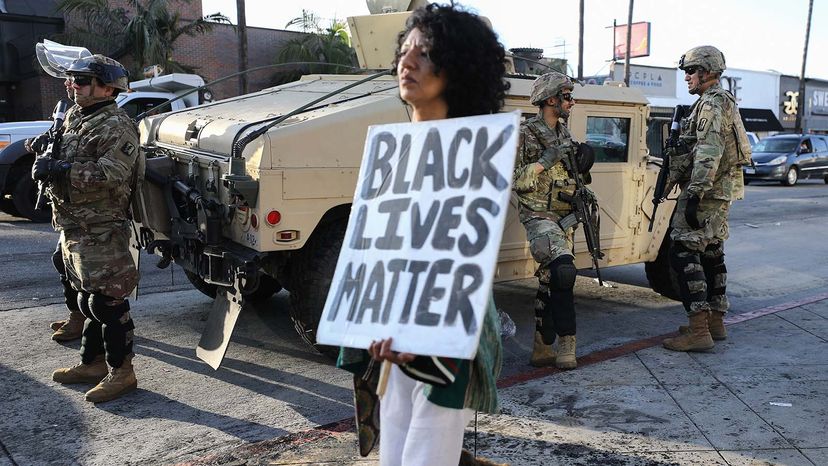
On June 1, 2020, as unrest surged in cities across the nation after the killing of an African American named George Floyd by Minneapolis police, President Donald Trump went to the Rose Garden of the White House to make a startling announcement. As protesters thronged in the streets outside the compound's fence, Trump ordered governors and mayors to stop the disturbances.
"I have strongly recommended to every governor to deploy the national guard in sufficient numbers that we dominate the streets," Trump said. "If a city or state refuses to take the actions that are necessary to defend the life and property of their residents, then I will deploy the United States military and quickly solve the problem for them," Trump proclaimed. He added that he already was dispatching "thousands and thousands of heavily armed soldiers" and other personnel to stop violence in the nation's capital.
Advertisement
Sources told NBC News that Trump was considering evoking the Insurrection Act, a law passed back in 1807 and expanded in 2006, which gives the president authority to use U.S. armed forces, including the National Guard, inside U.S. borders to restore order and enforce laws in limited circumstances (more on this later). Critical commentators quickly responded that Trump had overstepped his authority.
"Any attempt to use the military against civilians in this fashion would almost certainly be illegal and unconstitutional," Washington Post blogger Jennifer Rubin, an attorney, responded.
Nevertheless, the words "martial law" and the hashtag "#MartialLaw2020" began trending on Twitter, as critics of the president began claiming that it was the first step in a military takeover and suspension of democracy.
Advertisement
